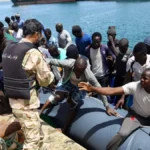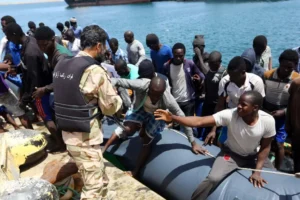Germany has taken over the rotating one-year presidency of the Sahel Alliance — a key development body from the region — with Berlin saying that jobs, agriculture, and security will be its top priorities during the tenure.
Germany’s Development Minister Svenja Schulze traveled to Mauritania earlier this week to formally take over the presidency of the Sahel Alliance from its predecessor Spain. “I am taking over the presidency of the Sahel Alliance to show that Germany, together with its partners, is there for the region and is committed to the region,” said Schulze in the capital, Nouakchott. “My priorities for the Sahel Alliance are jobs, agriculture, and social security in the region. And preventing state-free spaces,” she said in tacit reference to two main challenges directly threatening the Sahel — poverty and Islamic terrorism.
Founded by Germany, France, and the European Union in 2017, the 18-member Sahel Alliance has spent more than $30.71 billion in a region stretching from the Atlantic Ocean to the Red Sea south of the Sahara. The EU considers its relationship especially with the so-called the G5 Sahel countries — namely Burkina Faso, Chad, Mali, Mauritania, and Niger — to be of strategic importance to the bloc in terms of security and stability, international climate and sustainable development commitments and migration routes linked to Europe. At the same time, Germany has long been a significant player in stabilization and development efforts in the largely francophone Sahel. Berlin has already announced that when the German military ends its military mission in Mali in May 2024, it plans to expand economic aid and partnership programs in the wider Sahel region.
Source: The North Africa Post











